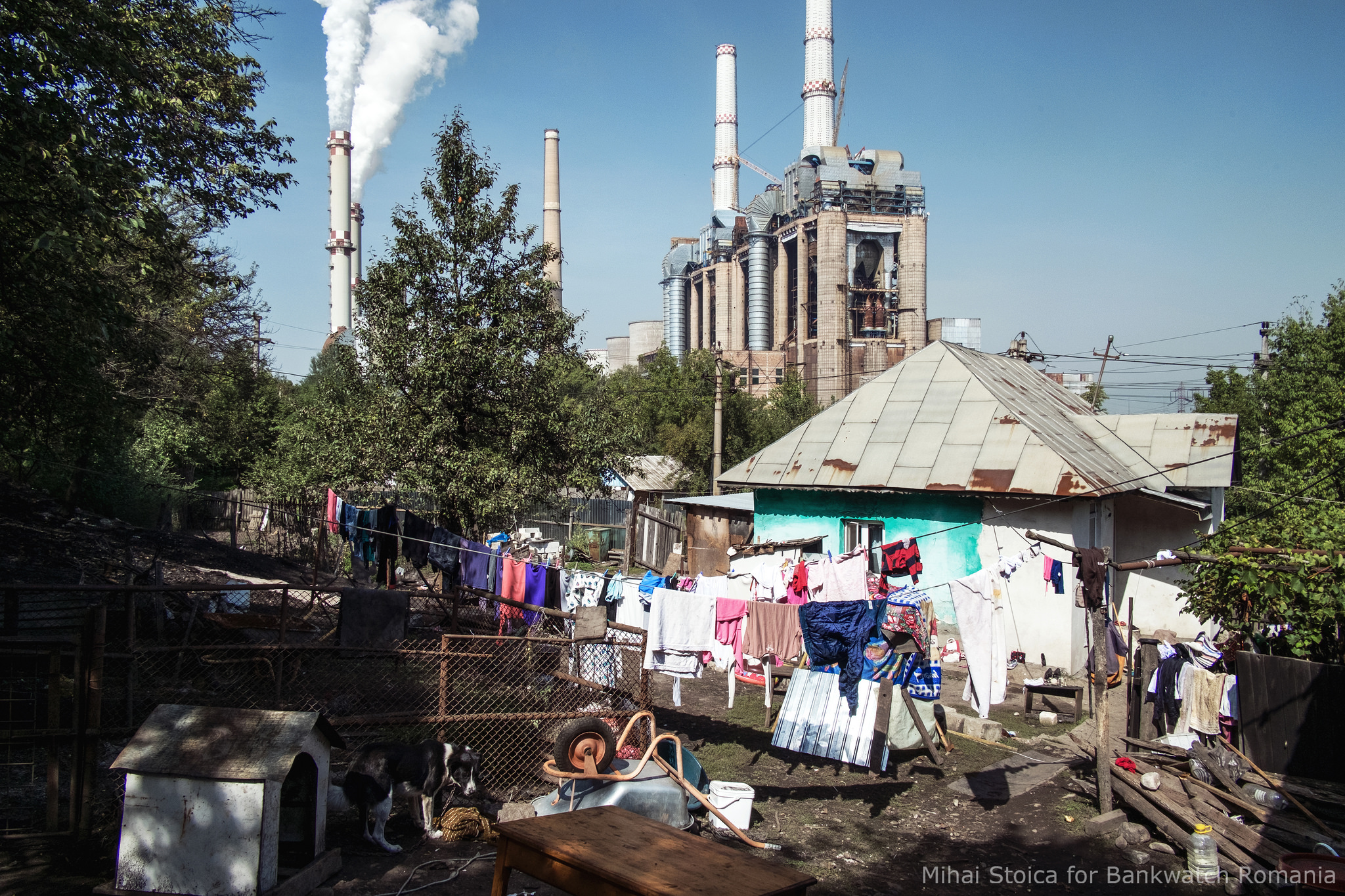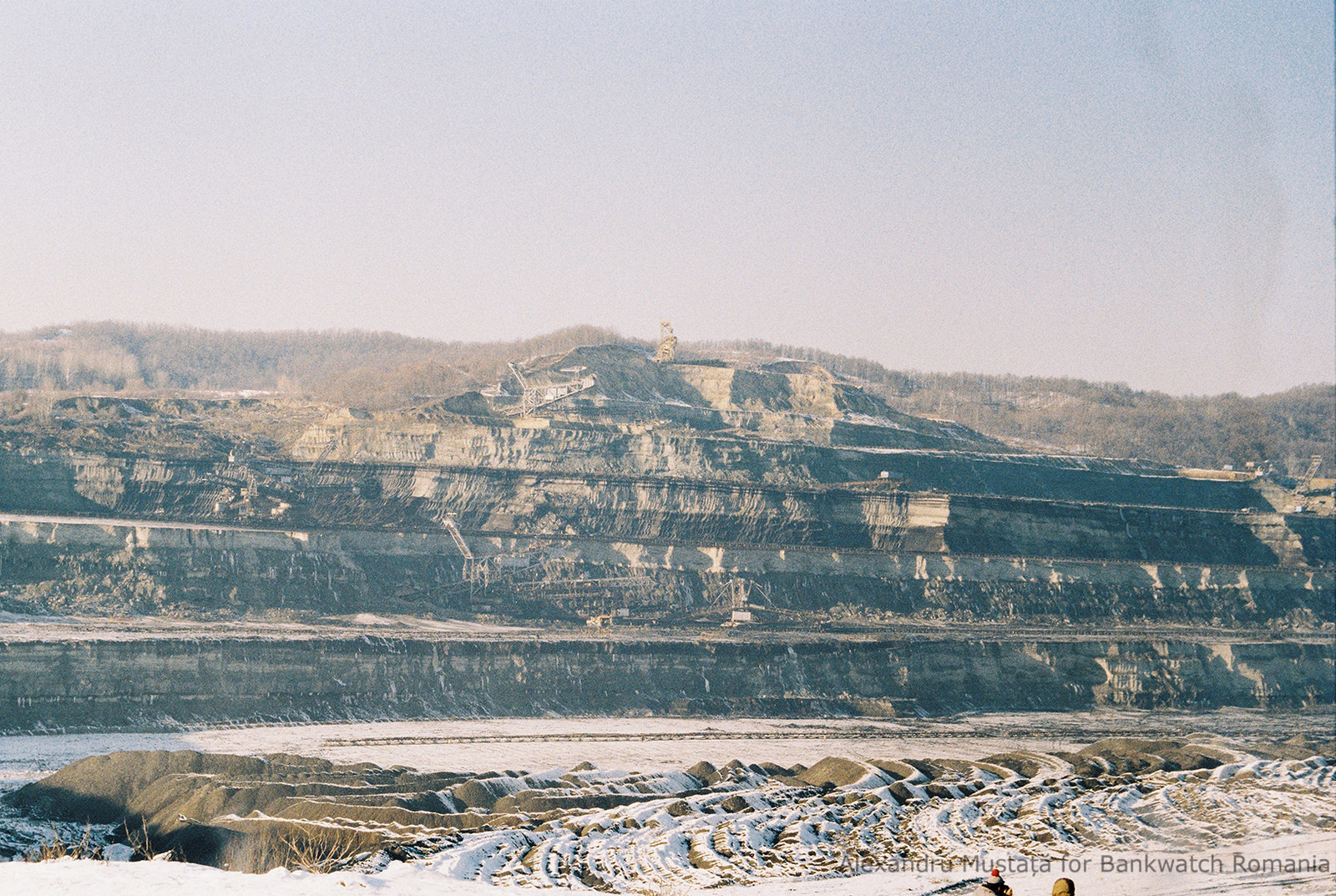Rovinari unit 7, Romania
CANCELLED: The Romanian Government has been negotiating for several years with the Chinese Government to build a new 600 MW unit at the lignite power plant in Rovinari, Gorj County. The new unit would be built on the site of Units 1 and 2, currently decommissioned. A new up and running plant would pollute the whole region for at least 40 more years, a coal plant’s average lifespan.

Stay informed
We closely follow international public finance and bring critical updates from the ground.
Background
In December 2012 Oltenia Energy Complex (state owned company) signed a memorandum of understanding with China Huadian Engineering Co. Ltd for setting up a project company and the construction of a 500 MW lignite-fired unit at Rovinari. The initial information was that the new unit would be built at an estimated cost of one billion euros. Since then, more memorandums of understanding have been signed between the Romanian and the Chinese company or the respective Governments, laying down the steps to create a Romanian-Chinese joint-venture, which would implement the project. The most recent one dates to September 2015, when it was reported that the unit would have an installed capacity of 600 MW and would cost EUR 847 million. The project team has met since them, the latest visit of a Chinese delegation to Rovinari taking place in August 2017.

In January 2013, the general manager of the Oltenia Energy Complex said the new unit will export the electricity to Austria and Turkey. China Huadian conducted a pre-feasibility study in 2014 for the construction of this unit at Rovinari, indicating the need to dismantle some of the existing infrastructure, something that would increase the costs of the project and which the representatives CE Oltenia disagreed with at the time. In addition, China Huadian Engineering Co. requested customs exemptions for equipment imported from China, demanding at the same time a long term power purchase agreement or a guaranteed price for coal, which, under European legislation, may be considered illegal state aid. China Huadian would ensure the full financing of the investment, being the main shareholder of the joint venture IPP (Independent Power Producer) that would be created and CE Oltenia would have a share of under 9%.
If the project went ahead, the new unit would be located next to the town of Rovinari, increasing existing air pollution levels from the other 4 units. The lignite would be supplied from the nearby open-pit mines – Tismana I and II, Rosia, Pinoasa, all owned by the same Oltenia Energy Complex – which would require expansion of production capacity. Extending these mines would mean clearing huge land areas, in most cases accompanied by massive deforestation.

Since 2012, Bankwatch Romania has filed a series of complaints in court, requesting the annulment of illegally issued deforestation permits and mine expansion permits which did not assess impacts on the environment. Almost all the actions have been successful in court. After an infringement procedure was initiated by the European Commission, all expansions were reassessed. However, the new permits fail to evaluate the cumulative impact of the mines, and are therefore again the subject of Bankwatch Romania court action, one of them being currently suspended. To date (May 2018) no environmental impact assessment procedure has been launched.
In short:
The existing power plant:
- Part of Oltenia Energy Complex
- 4 units installed every 330 MW each
- Three functional units: 3, 4 and 6; unit 5 undergoing modernisation
- Location: southwestern Romania, Gorj county
- Year of commissioning: 1972
- Fuel used: lignite
- Environmental integrated permit expired on 31.12.2017
New power plant
- China Huadian + CEOltenia
- 1 unit of 600 MW
- Fuel: lignite (6 million tonnes per year)
- Life expectancy: 40 years
- Significant social and environmental impacts
Latest news
Independent analysis questions economic viability of TES 6
Press release | 28 November, 2011Ljubljana – An independent analysis commissioned by Bankwatch and Focus published today reveals a number of unsubstantiated claims and methodological mistakes in the investment plan for the TEŠ 6 lignite plant in Slovenia. Correct calculations show that the internal rate of return is in reality lower than estimated by the project promoter, state-owned TEŠ. Had the rate of return been calculated properly, the project would not have qualified for the EIB loan of 440 million euros it is set to receive.
Read moreProtest proti Teš 6
Bankwatch in the media | 20 October, 2011http://tvslo.si/predvajaj/dnevnik/ava2.118804865/#ava2.118804218;;
Read moreArt installation at Berlaymont denounces banking on coal
Press release | 19 October, 2011Brussels – With an art installation that symbolizes EU citizens locked in a polluted environment, the Slovenian artist Marko Kumer Murč and Slovene environmentalists from Focus protest against European public and private banks pouring hundreds of millions of euros into a new lignite plant in their country, at Sostanj. Many Slovenians oppose this project and the Slovenian parliament has just refused to support a state guarantee for the banks’ loans. The action is supported by the international NGOs Banktrack and CEE Bankwatch Network, which are campaigning against the project.
Read moreRelated publications
A race to the top: Western Balkans 2024
Report | 16 July, 2024 | Download PDFA report by Global Energy Monitor, CEE Bankwatch Network and REScoop.eu reveals the Western Balkans have more than 23 GW of proposed utility-scale solar and wind projects—almost 70 per cent more than a year ago.
Air pollution in Ugljevik, Bosnia and Herzegovina
Briefing | 27 March, 2024 | Download PDFUgljevik lignite-fired power plant, located in Republika Srpska, an entity of Bosnia and Herzegovina, is notorious Europe-wide for its extremely high emissions of sulphur dioxide into the air. Despite the exceptionally high stack of the power plant, the town of Ugljevik is still suffering from serious air pollution.
The EU’s proposed Reform and Growth Facility for the Western Balkans
Briefing | 7 March, 2024 | Download PDFThis briefing provides key recommendations to define clearer and narrower goals for the Reform and Growth Facility for the Western Balkans, focusing on social and/or environmental goals.
